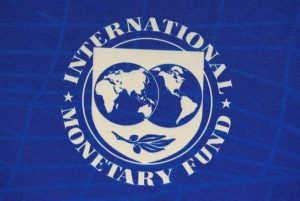Global rating agency Moody’s has warned Kenya over its debt.

It urged the East African nation to slow down on its debt in order to avoid dire consequences.
The Global Rating Agency, is also concerned about the significant interest payments being offered to treasury bond investors by the Central Bank of Kenya (CBK) over the past five (5) years.
According to Moody’s if Kenya is not able to cut down on its debt and reimpose its fiscal strength, the nation’s ability to withstand financial pressure in the future could get compromised.
Data from the Central Bank of Kenya (CBK) revealed that in the past three (3) months (July to September 2020), treasury bond investors have been offered Treasury Bonds to the tune of 220 billion Kenyan Shillings, with the average interest rates being offered ranging from 10.26 percent to 11.87 percent in the same ninety (90) day period.
Moody’s stated that the number of Treasury Bills being auctioned by the Central Bank of Kenya (CBK) is huge. At 8.7 percent of GFP at the end of June 2020, it’ll leave Kenya vulnerable to a number of market sentiments and an increase in borrowing costs.
The data also revealed that the Kenyan Government’s levels of debt have increased from 5.8 trillion Kenyan Shillings to 6.7 trillion Kenyan Shillings as at the 20th of June 2020.
The recommendation of Moody’s is that the Kenyan Government should carry out a reliable fiscal consolidation plan which will dictate its ability to effectively handle any increase in the costs of borrowing, liquidity, as well as rollover risks.

The International Monetary Fund (IMF) which gave Kenya time to handle the ongoing Coronavirus disruptions before resuming fiscal consolidation, has also given similar suggestions.
The Coronavirus pandemic according to the International Monetary Fund (IMF) has taken an immense toll on the economy in Kenya, while also leading to substantial monetary needs and hindering growth.
The Acting Deputy Managing Director of the International Monetary Fund (IMF); Tao Zhang after board discussions on Kenya in May 2020 said, “It is important that Kenya resumes its fiscal consolidation plans to reduce macroeconomic vulnerabilities once the crisis abates.”
A number of measures implemented to handle the Coronavirus pandemic involve tax waivers, tax cuts, and tax exemptions. Moody’s believes that these measures will affect tax revenues.
The Treasury stated that the ongoing pandemic has negatively affected the revenue performance in 2020/2021.
Fitch which is another rating agency, has reportedly downgraded Kenya’s outlook from stable to negative as a result of the increasing debt.
Are there any other topics, news or categories that you would like us to write on? Feel free to reach out to Mpesa Pay in the comment section.


